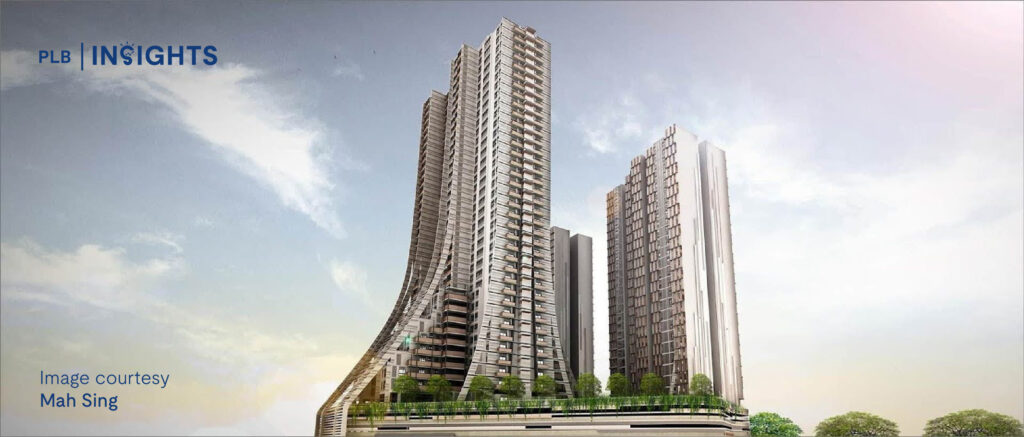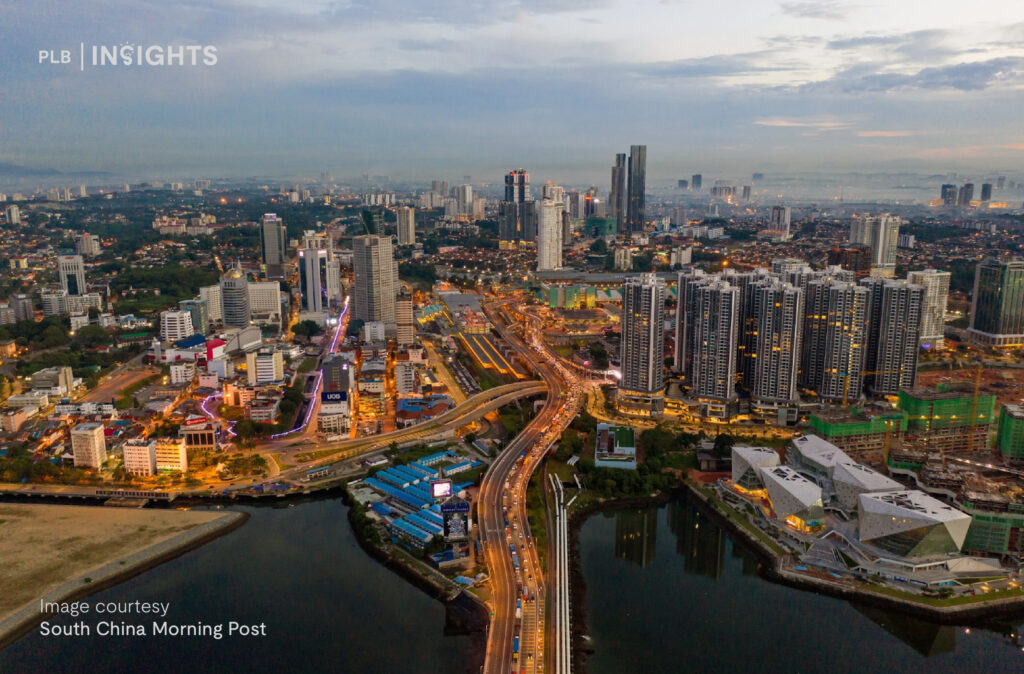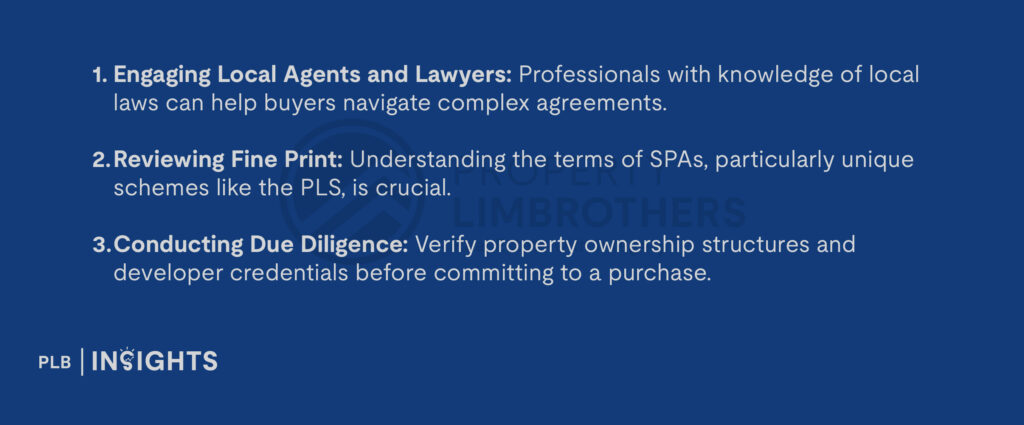
A growing legal dispute involving over 100 Singaporean buyers highlights the complexities of cross-border property investments in Johor, Malaysia. At the centre of the controversy are allegations of misrepresentation surrounding the Private Lease Scheme (PLS), a unique property ownership model in Malaysia that has left many buyers questioning their rights.
The Dispute: Private Lease Scheme vs. Leasehold Ownership

The issue came to light when Singaporean buyers realised they did not hold legal ownership of their properties, as initially believed. Instead, their units were sold under the PLS, which functions more like a rental agreement for a specified period (e.g., 99 years) than traditional leasehold ownership. Under the PLS, buyers are classified as tenants, and developers retain ownership of the land.
For instance, according to an article published by Edgeprop, Singaporeans who purchased units in Johor’s Iskandar Residences development, built by Distinctive Resources, claim they were misled into believing their Sales and Purchase Agreements (SPA) conferred leasehold ownership. However, the plaintiffs claimed that agreements deviated from Malaysia’s standard Schedule H terms under the Housing Development Regulations (HDR) 1989, which govern freehold and leasehold properties.
The plaintiffs allege that marketing materials, including brochures and online content, falsely represented the property as leasehold. They are now seeking a court declaration to amend the SPA, issue strata titles, and transfer legal ownership to the buyers.
Broader Legal Implications
This is not the first time such cases have surfaced in Johor. In 2020, buyers of The Meridin@Medini successfully sued their developer for breaching Malaysia’s housing laws. In that case, the court declared the SPA invalid and awarded damages to the buyers.
In the current case, IIB (Iskandar Investment Berhad), a government-linked company that leased the land to the developer, defends the PLS as a legitimate and approved scheme. The developer, Distinctive Resources, also denies misrepresentation, arguing that the terms of the lease were clearly stated in the SPA. Both entities contend that the plaintiffs’ claims are time-barred, as they were brought more than six years after the SPA’s execution.

Market and Buyer Sentiment
The controversy has sparked broader discussions about the risks of investing in Johor’s property market. Lawyers and real estate professionals are urging potential buyers to thoroughly review SPAs and engage independent legal counsel familiar with local regulations.
According to CNA, Johor remains a hotspot for Singaporean property buyers, particularly in areas like Medini and the Johor-Singapore Special Economic Zone (SEZ). Analysts attribute this demand to affordability, proximity to Singapore, and increasing foreign direct investments in Johor’s real estate sector. However, the rise of disputes such as this highlights the need for greater transparency and clearer communication from developers.

Understanding the Private Lease Scheme
The PLS is unique to Malaysia and differs significantly from leasehold models in Singapore. While leasehold property in Singapore confers ownership for the lease duration, PLS buyers in Malaysia hold only a tenancy-like arrangement, limiting their rights to rent or sell the property.
One plaintiff expressed frustration: “We had unwittingly paid upfront for a 99-year lease with no protection of the strata management act as owners. How do we sell a property that we don’t own?”
Johor Property Market Dynamics
Despite these challenges, Johor’s property market remains resilient. According to CNA, condo prices in Johor Bahru surged nearly 30% in the first half of 2024 compared to pre-pandemic levels. Developments in the SEZ and a pro-business political environment have bolstered investor confidence.
Singaporean buyers continue to dominate the market, drawn by lower costs of living and enhanced connectivity across the Causeway. However, incidents like the current dispute may temper enthusiasm for investments in the region.
Lessons for Cross-Border Buyers
This legal battle serves as a cautionary tale for Singaporeans exploring overseas property investments. Experts recommend:

As the case unfolds, its outcome could set a precedent for similar disputes in Malaysia’s property market, underscoring the importance of transparency and robust consumer protections.
Key Considerations for Singaporeans Investing in JB Properties
If you’re considering purchasing property in JB, here’s what you need to evaluate:
1. Understand the Property Tenure
Always verify whether the property falls under PLS or traditional leasehold arrangements. Do not assume that a 99-year lease in Malaysia is equivalent to Singapore’s leasehold. Ask for documentation and seek clarification from the developer or real estate agent.
2. Engage Legal Experts
Work with property lawyers familiar with Malaysian real estate laws. A professional review of the Sales and Purchase Agreement (SPA) can help identify hidden clauses and clarify your rights and obligations.
3. Evaluate Resale and Rental Restrictions
PLS properties often have restrictions on renting or selling, which can affect the liquidity of your investment. Consider whether such limitations align with your financial goals.
4. Factor in Long-Term Value
Properties under PLS may depreciate faster as the lease term progresses. Unlike Singapore’s structured approach to lease expiry, PLS lacks guarantees for lease renewal or compensation. Assess how this might impact the property’s value over time.
5. Check Management Structures
In Singapore, strata-titled properties give owners a voice in management decisions. Under PLS, developers maintain control, which can lead to dissatisfaction if amenities are poorly managed. Investigate the developer’s track record in maintaining properties.
This report combines insights from various news sources, as well as PLB Insights’ findings. Stay tuned for further developments in this ongoing legal case and its implications for Singaporean property buyers.
Curious about Singapore’s real estate market and how it aligns with your property goals? Our team of local real estate experts is here to help you navigate the evolving market landscape and uncover opportunities that suit your needs. Whether you’re considering your next property move or looking to explore investment options, we’re here to provide tailored advice and insights. Contact us today to take the first step with confidence.









